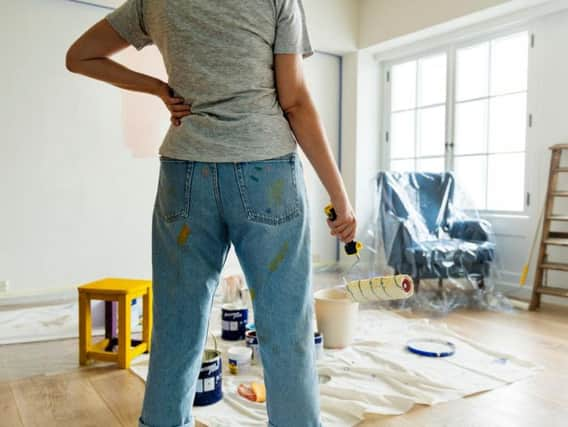Easter weekend DIY jobs could be insurance disaster


According to recent research from the National Association of Estate Agents (NAEA), homeowners spent an average of £1875 on improving their property in the last five years.
But while home improvements can add value, create more space and make home an even nicer place to be, what happens when it goes wrong?
And, importantly, will your insurer step in to clear up the mess?
When to speak to your insurer
Of course, you don’t have to tell your insurers every single time you pick up a paintbrush or want to replace fitted units.
But do let them know if you are planning to make major structural changes such as removing walls, creating an extension or converting a loft.
Those are big changes to your home and may well add to the costs of rebuilding your property should something go wrong.
You could require a change to your insurance cover to remain fully protected.
Let your insurer know before any work starts - failing to do so could invalidate your insurance.
Value your home
After all that hard work, you’ll probably want to buy new furnishings or equipment – like some gadgets for your nice new kitchen, or lovely furnishings for your updated conservatory.
Many of us under-estimate the cost of replacing our belongings if something happens, so this is a good time to double check your insurance cover is right for your needs.
When trouble strikes
Tackling a home improvement job by yourself may save you the costs of hiring professionals but be careful you don’t end up paying more in the long run.
Research from Local Heroes, a site which connects people seeking tradespeople, says DIY mistakes cost British homeowners £34bn a year to put right.
While repairing a DIY blunder is annoying, it’s even worse if you or someone else has been hurt as a result of your home improvement project.
The Royal Society for the Prevention of Accidents (RoSPA) says over 200,000 DIY enthusiasts are hurt each year, ending up in hospital accident and emergency rooms.
Bad enough, but you might also find your policy won’t pay out after an accident – cover for damage related to DIY or building work are usually offered as an optional add on to your insurance policy.
Make sure you have accidental damage insurance added to your policy to ensure you’re covered for home improvement and DIY work.
Call the professionals
If your DIY job is big then you may need a helping hand. If you’re hiring a tradesman, make sure they have insurance in place in case anything goes wrong.
Check they are linked to a professional body and be sure you have the right insurance cover to help you fix a botched job.
Remember, not all policies are the same. So, before you carry out any work take the time to read your policy and double check what you are covered for.
Insurance specialist Ageas is one of the largest insurers in the UK with roots stretching back to 1824. Visit the Ageas website to find out more about home insurance – and how DIY and home improvements can affect your cover.
.